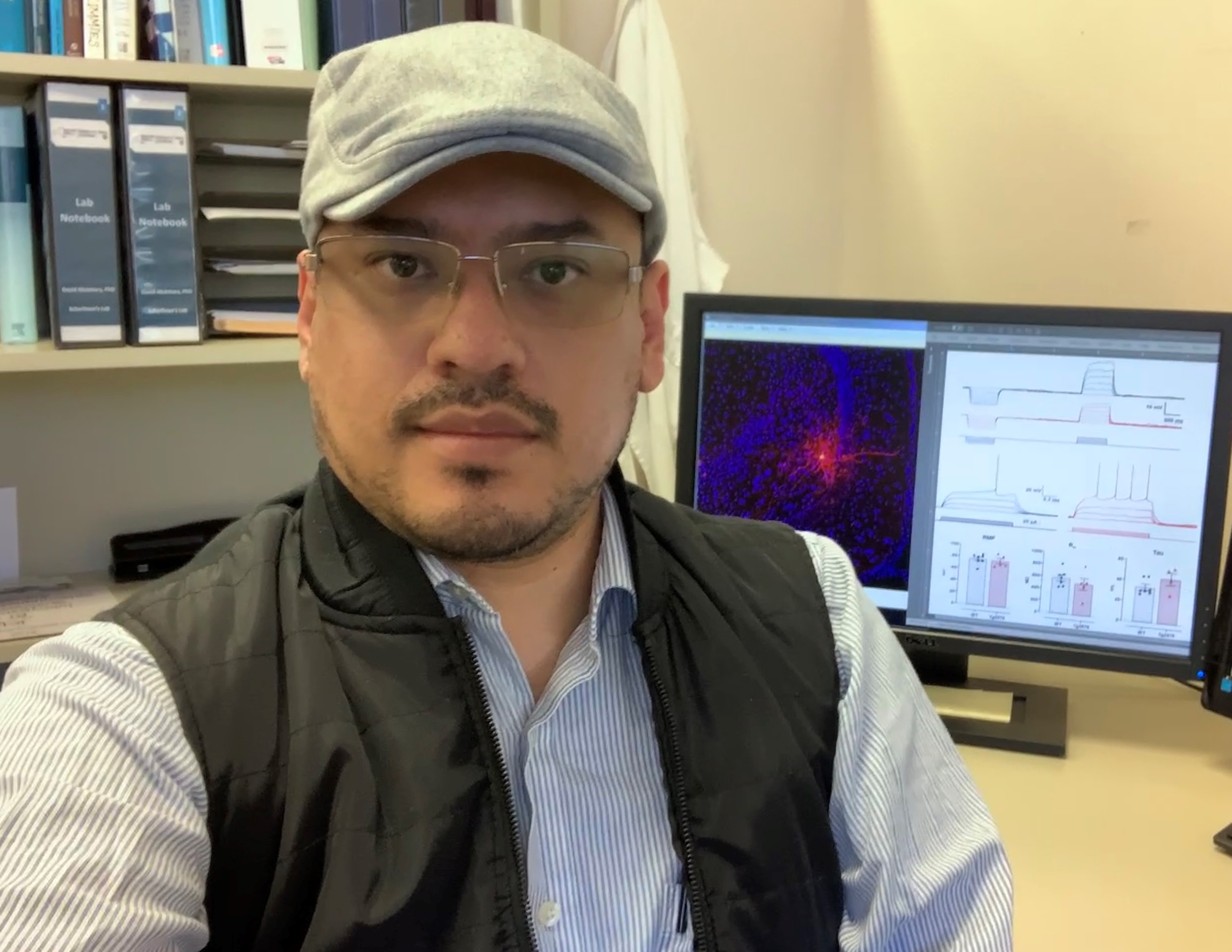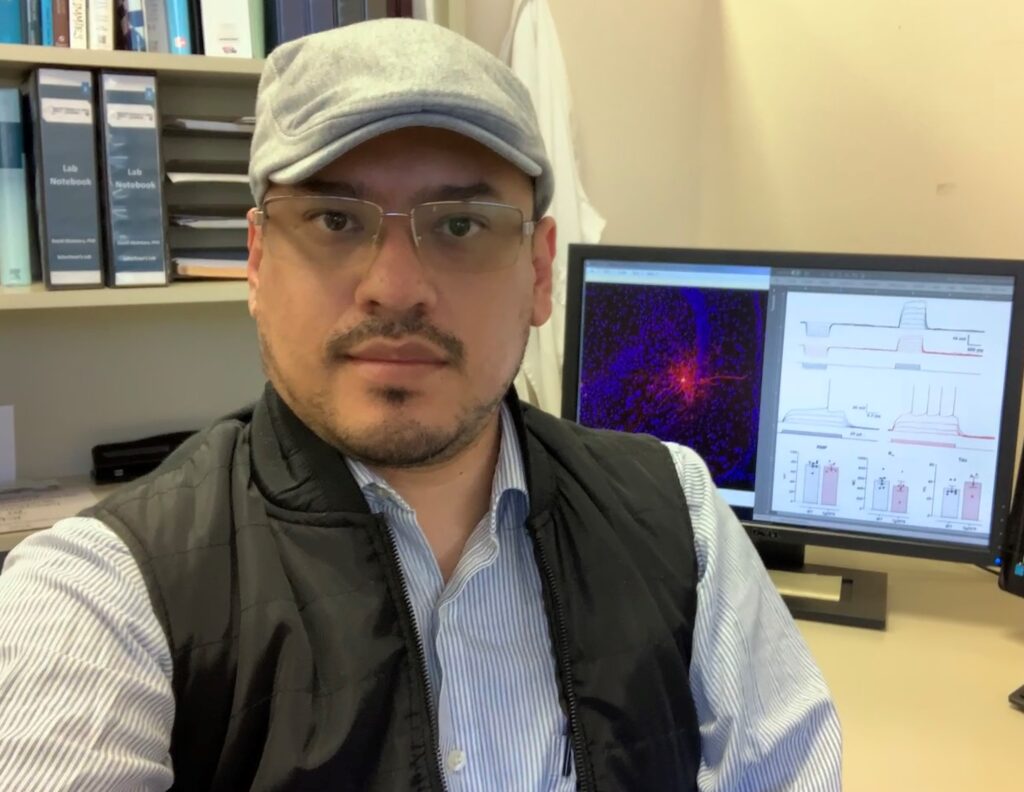
Dr. David Alcantara earned MS and PhD degrees in Neuropharmacology and Experimental Therapeutics at the Center for Research and Advanced Studies of the National Polytechnic Institute in Mexico City. During his graduate studies, Dr. Alcantara studied the alterations in neurotransmitter and neuromodulator systems in the process of epileptogenesis, in particular those changes that affect the dopaminergic system and reduce its inhibitory role. After he graduated, Dr. Alcantara started his postdoctoral training at the Institute of Neurobiology of the National Autonomous University of Mexico, where he worked on the potential mechanisms of hyperexcitability in Alzheimer’s disease (AD) and its relevance to epilepsy. In particular, he studied the hippocampal alterations induced by the intracerebral injection of the amyloid beta (Aβ) protein, a hallmark of AD, in the stability of the hippocampal network and its relationship with the facilitation of seizures.
Currently, he is a postdoctoral fellow in the laboratory of Dr. Helen Scharfman, and his research is focused on the study of alterations in electrophysiological properties of neurons and the neuronal networks they integrate, in animal models of Alzheimer’s disease (AD) and epilepsy, from a functional and integrative perspective. He is studying the mechanisms underlying the development of hyperexcitability in transgenic animal models of AD, which may be related to the development of seizures and epilepsy in this neurodegenerative illness. Specifically, he is working on elucidating distinct electrophysiological characteristics of dentate gyrus (DG) cell types at very early ages in transgenic mouse models of AD. He is also conducting studies about the involvement of alterations in the cholinergic system of these mice using specific optogenetic and chemogenetic approaches. This is important because early changes in the DG and regulation of its activity by neuromodulatory systems may provide insight into novel early treatments, or biomarkers.
Throughout his career, Dr. Alcantara has taught and mentored at different levels of education, from university to postgraduate students, and he has also provided specific scientific training during international courses. All this experience has helped him to expand his knowledge in the field of neuroscience and encouraged him to continue to study the pathophysiology of different neurological illnesses, looking for possible treatment interventions for the benefit of public health.


